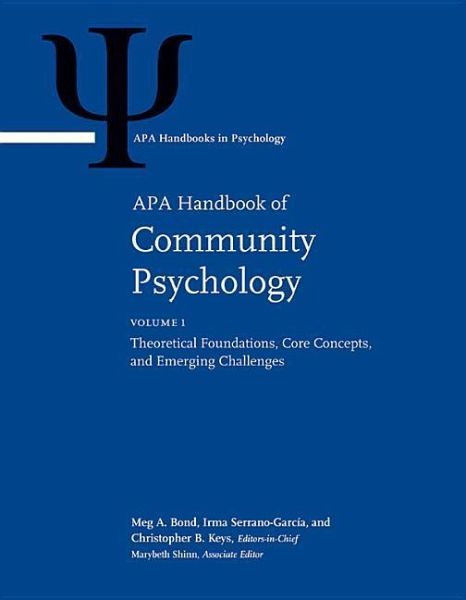Meg A. Bond, PhD, is a professor of psychology, director of the Center for Women and Work, and cocoordinator of the graduate program in community social psychology at the University of Massachusetts Lowell. She is also a resident scholar at the Brandeis University Women's Studies Research Center. Her publications have addressed sexual harassment, collaboration among diverse constituencies, and empowerment dynamics for underrepresented groups in community and organizational settings. Her book, Workplace Chemistry: Promoting Diversity Through Organizational Change, chronicles a long-term organizational change project focused on issues of gender, race, and ethnicity. Her ongoing scholarship focuses on diversity-related workplace dynamics in community health centers and challenges faced by women in STEM fields. Her particular emphasis is on the subtle interpersonal dynamics and qualities of work settings that present barriers to the full integration and thriving of members of non-dominant groups. Dr. Bond has served on the editorial boards of several psychology journals and is currently on the boards of the American Journal of Community Psychology and Advances in Community Psychology: The Book Series of the Society for Community Research and Action. Over the years, she has been elected to several positions on the executive committee of the Society for Community Research and Action (SCRA), including serving as president in 997 amp ndash 998 and as the current chair of the publications committee. She has received two career awards from SCRA - a Special Contributions Award (2 ) and the Ethnic Minority Mentoring Award (2 9). She has also played leadership roles within the Society for the Psychological Study of Social Issues (SPSSI), including as a member of the Executive Committee and as a founding cochair of the Public Policy Committee. Dr. Bond has also served as chair of the APA Committee on Women and as a member of the Board for the Advancement of Psychology in the Public Interest. Dr. Bond is a fellow of the APA, SCRA, SPSSI, and the Society for the Psychology of Women. Irma Serrano-Garc amp iacute a, PhD, is a retired professor of the department of psychology at the University of Puerto Rico. She holds a post doctorate in public policy from the Harvard University Graduate School of Education, a PhD in social-community psychology from the University of Michigan, and a BA and MA in psychology from the University of Puerto Rico. She was the first woman editor-in-chief of the Interamerican Journal of Psychology and has been on the editorial board of 2 peer reviewed journals both in the United States and abroad. She has more than 25 scholarly publications including journal articles, book chapters, and books, including Contribuciones Puertorrique amp ntilde as a la Psicolog amp iacute a Social Comunitaria [Puerto Rican Contributions to Social Community Psychology] coedited with Wayne Rosario and Historias de Psicolog amp iacute a Comunitaria en Am amp eacute rica Latina [Histories of Community Psychology in Latin America], coedited with Maritza Montero. Dr. Serrano-Garc amp iacute a has been on the Executive Committee of the Interamerican Society of Psychology, the Puerto Rico Psychology Association, and the Society for Community Research and Action. Dr. Serrano-Garc amp iacute a has been a member of various APA committees and boards, including the Committee of Ethnic Minority Affairs, the Committee of Women in Psychology, the Committee on International Relations in Psychology, the Committee on Psychology and AIDS, the Board of Ethnic Minority Affairs, and the Board of Social and Ethical Responsibility. Dr. Serrano-Garc amp iacute a has also represented APA Divisions 9 (Society for the Psychological Study of Social Issues) and 27 (Society for Community Research and Action: Division of Community Psychology) on the APA council. She has coordinated many professional events among which the most notable are the Interamerican Congress of Psychology and the First International Conference of Community Psychology, both in San Juan, Puerto Rico. She has presented her work across five continents. She has received various awards, including the Distinguished Contributions to Education and Training in Psychology Award from APA, the Psychologist of the Year Award, and the Life-Time Achievement Award from the Puerto Rican Psychological Association and the Interamerican Psychologist of the Year Award from the Interamerican Society of Psychology. Dr. Serrano-Garc amp iacute a continues to publish about community psychology, social change, participatory research, public policy, program evaluation, and university teaching and learning and is a consultant to nonprofit organizations and universities. Christopher B. Keys, PhD, is a professor emeritus and former chair of psychology departments at both the University of Illinois at Chicago and DePaul University. He has also been a founder and chair of the community psychology doctoral program in the psychology department at the University of Illinois at Chicago, and a professor and codirector of the advocacy and empowerment of minorities program in the department of disability and human development at University of Illinois at Chicago. He was the founding associate dean for research in the college of science and health at DePaul University. Dr. Keys's research has focused on organizational approaches to community psychology, organizational empowerment, community research issues, and the positive community psychology of disability. He coedited an issue of the American Journal of Community Psychology on organizational approaches to community psychology, and two issues of the Journal of Prevention and Intervention in the Community on community psychology and disability and on inclusion of students with disabilities in schools, all initial special issues on these topics in community psychology. He was one of the principal organizers for the two Chicago conferences on research methods and issues in community psychology, each of which yielded an edited book on the topic. He has mentored many community psychology students and colleagues over time. Working with them has been a major delight of his professional life. He contributed to the development of the first doctoral program in disability studies in the world at the University of Illinois at Chicago. He has coauthored and coedited more than 25 articles, chapters, and books on community psychology and disability-related topics. Dr. Keys has lectured and conducted workshops in Africa, Asia, Australia, Europe, and Latin America. The World Bank selected him to lecture in China on organizational change in schools in 99 . The Australian Ministry on Human Services and Health invited him to be the international observer for the First Australian Conference on Disability Advocacy in 994. For five decades he has consulted on organizational, management, and staff issues for academic, not-for-profit, and governmental organizations. Dr. Keys is a fellow of the Society for Community Research and Action and APA and a founding fellow of the Midwestern Psychological Association. He has served as president of the Society for Community Research and Action and as chair of the Council of Community Psychology Program Directors and of the Council of Training Directors. Dr. Keys has also been a member of the APA Committee on Accreditation. He was honored to receive the Distinguished Contribution to Theory and Research in Community Psychology Award from the Society for Community Research and Action in 2 8.














